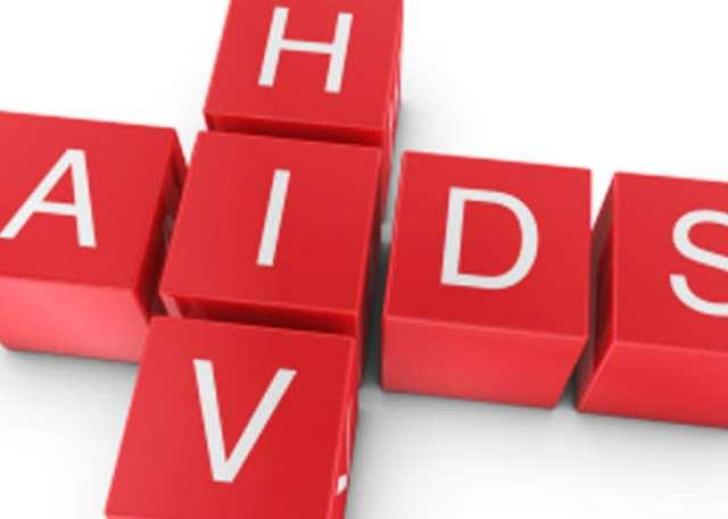News / National
Zimbabwe launches T-Cell HIV vaccine trial
09 Aug 2025 at 08:48hrs |
3 Views

Zimbabwe has taken a historic step in the global fight against HIV with the launch of a groundbreaking vaccine trial led by local and regional scientists. The Mutala Trust’s Infectious Disease Research Laboratory has become the epicentre of Africa’s first-ever Phase 1 HIV vaccine trial — a bold move that could redefine the continent’s role in medical innovation.
The trial, part of an African-led collaborative study, seeks to determine whether a new HIV vaccine is safe and capable of triggering a strong immune response in both HIV-positive and HIV-negative adults. Scientists hope this approach will finally overcome one of the greatest hurdles in HIV vaccine development: the virus’s relentless ability to mutate.
Speaking at the launch, Professor Tariro Makadzange, Executive Director of Mutala Trust, explained the science behind the vaccine's design.
"What is interesting about this vaccine is that it targets the parts of the virus that are structurally or functionally constrained — the parts that have less room to mutate," she said. "The high mutation rate of HIV has long made vaccine development difficult, but this approach focuses on key viral regions that can’t easily change. Our ultimate goal is to develop a vaccine that can prevent HIV and help people living with the virus better control infection."
The trial is being conducted across three African sites — one in Zimbabwe and two in South Africa — with 120 participants expected to be enrolled. So far, eight participants aged between 18 and 50 have joined the trial at Mutala’s site, according to Dr Constantine Mutata, Medical Officer at the Trust.
"We are enrolling both HIV-positive and HIV-negative individuals," Dr Mutata confirmed. "Participants will be followed for about 19 months, and while results will take time due to analysis phases, we have the research infrastructure and expertise in place to carry this out to international standards."
This marks a historic shift — not only in medical research but in African participation and leadership in global clinical trials. Historically, the continent has hosted just 2% of all clinical trials, despite representing nearly 20% of the world’s population. Professor Makadzange strongly refuted the misconception that African participants are being used as "guinea pigs."
"It’s tragic that people still say that. The reality is we are excluded from most research," she said. "If we’re not driving the science, we are simply waiting for others — Americans and Europeans — to create vaccines and therapies for us. That’s not acceptable. This trial is science for Africans, by Africans."
She further emphasised that Zimbabwean scientists are leading the clinical design, overseeing trial procedures, and conducting the research — a clear indication of local capacity and expertise.
"This isn’t just participation — we are leading it. This is our science, our innovation. It’s a new chapter not just in HIV research, but in what African science can achieve."
The HIV vaccine trial represents more than a medical breakthrough — it’s a powerful symbol of Zimbabwe’s leadership, resilience, and innovation in the ongoing fight against HIV, a virus that has disproportionately affected the continent for decades.
With the trial now underway, Zimbabwe is not only contributing to a potentially life-saving global scientific effort but also championing a long-overdue shift towards African ownership in research and development.
The trial, part of an African-led collaborative study, seeks to determine whether a new HIV vaccine is safe and capable of triggering a strong immune response in both HIV-positive and HIV-negative adults. Scientists hope this approach will finally overcome one of the greatest hurdles in HIV vaccine development: the virus’s relentless ability to mutate.
Speaking at the launch, Professor Tariro Makadzange, Executive Director of Mutala Trust, explained the science behind the vaccine's design.
"What is interesting about this vaccine is that it targets the parts of the virus that are structurally or functionally constrained — the parts that have less room to mutate," she said. "The high mutation rate of HIV has long made vaccine development difficult, but this approach focuses on key viral regions that can’t easily change. Our ultimate goal is to develop a vaccine that can prevent HIV and help people living with the virus better control infection."
The trial is being conducted across three African sites — one in Zimbabwe and two in South Africa — with 120 participants expected to be enrolled. So far, eight participants aged between 18 and 50 have joined the trial at Mutala’s site, according to Dr Constantine Mutata, Medical Officer at the Trust.
"We are enrolling both HIV-positive and HIV-negative individuals," Dr Mutata confirmed. "Participants will be followed for about 19 months, and while results will take time due to analysis phases, we have the research infrastructure and expertise in place to carry this out to international standards."
"It’s tragic that people still say that. The reality is we are excluded from most research," she said. "If we’re not driving the science, we are simply waiting for others — Americans and Europeans — to create vaccines and therapies for us. That’s not acceptable. This trial is science for Africans, by Africans."
She further emphasised that Zimbabwean scientists are leading the clinical design, overseeing trial procedures, and conducting the research — a clear indication of local capacity and expertise.
"This isn’t just participation — we are leading it. This is our science, our innovation. It’s a new chapter not just in HIV research, but in what African science can achieve."
The HIV vaccine trial represents more than a medical breakthrough — it’s a powerful symbol of Zimbabwe’s leadership, resilience, and innovation in the ongoing fight against HIV, a virus that has disproportionately affected the continent for decades.
With the trial now underway, Zimbabwe is not only contributing to a potentially life-saving global scientific effort but also championing a long-overdue shift towards African ownership in research and development.
Source - ZBC
Join the discussion
Loading comments…
































